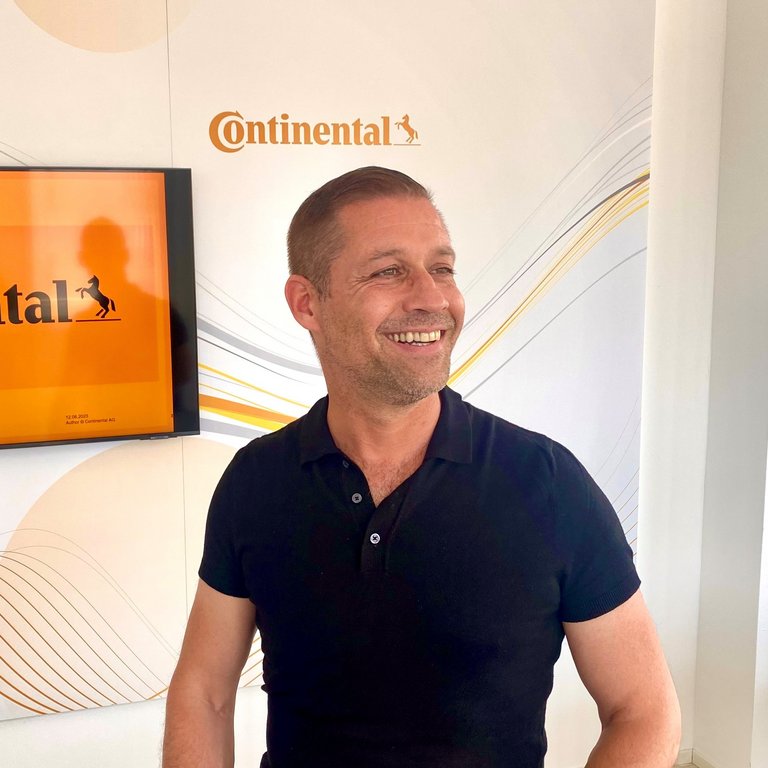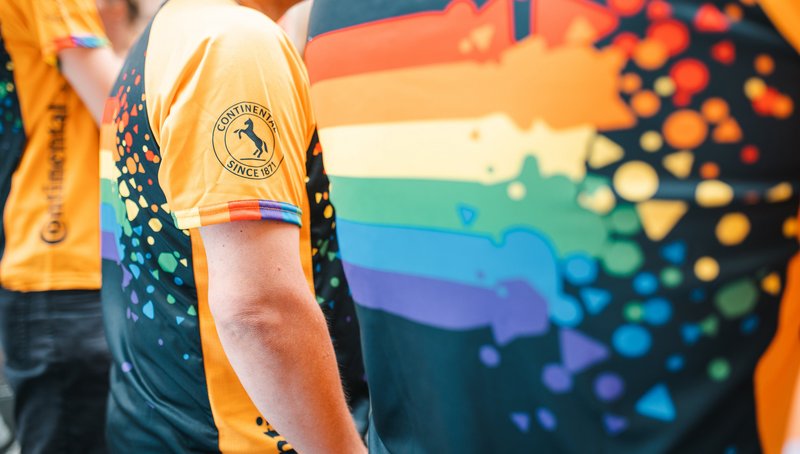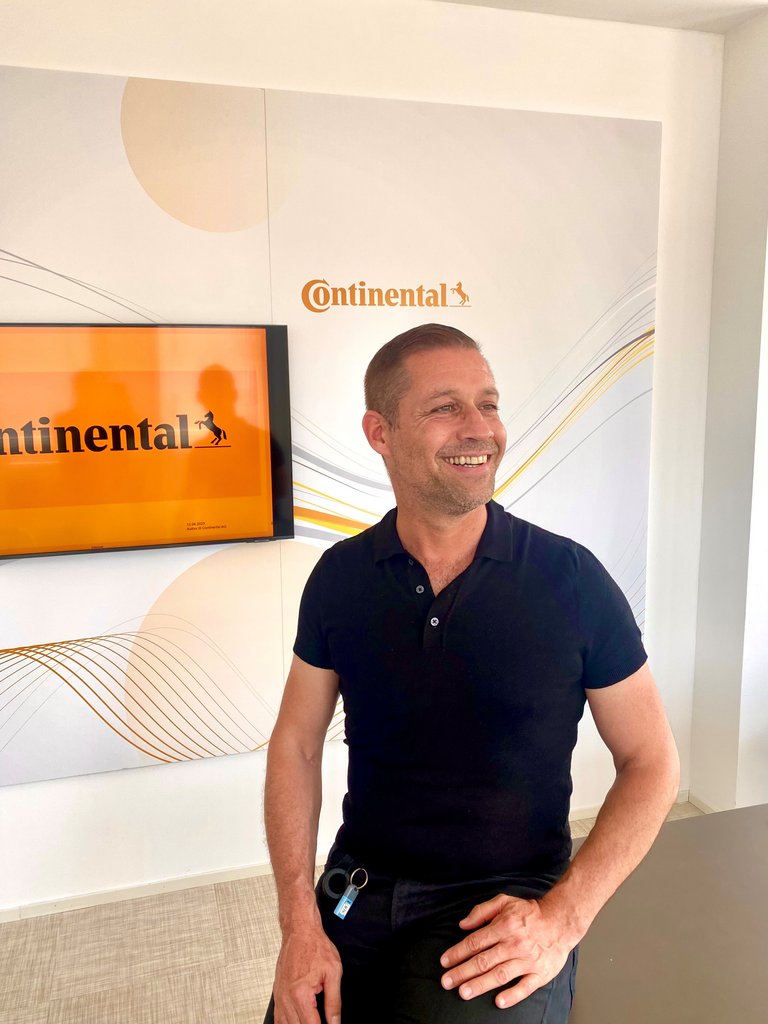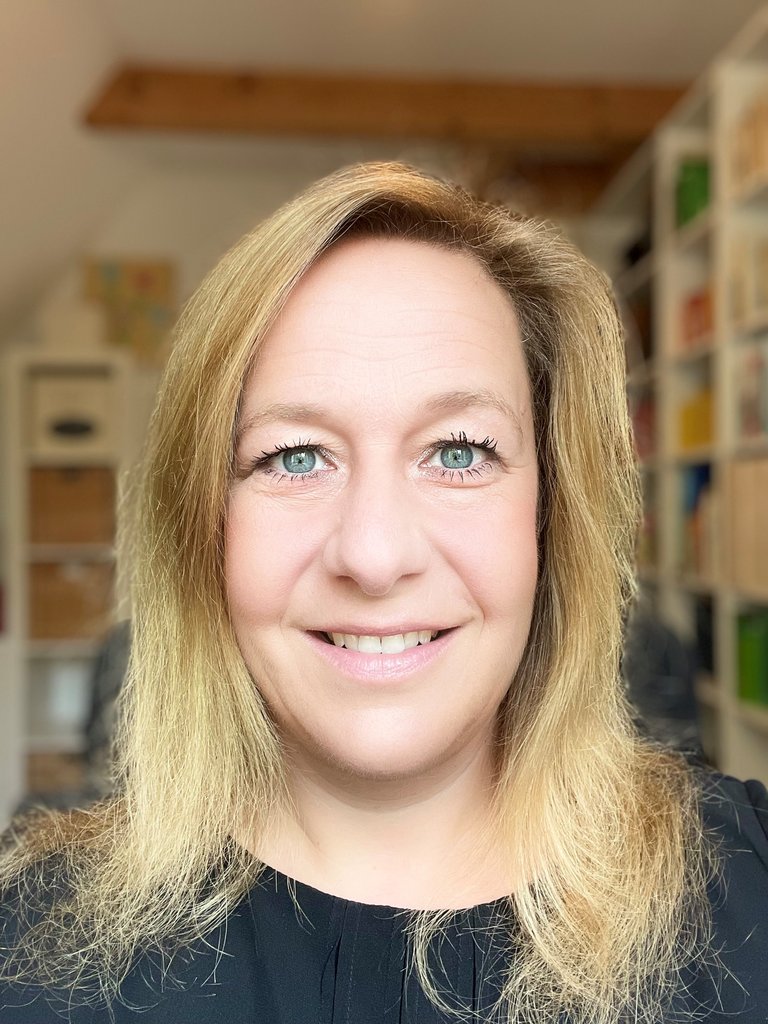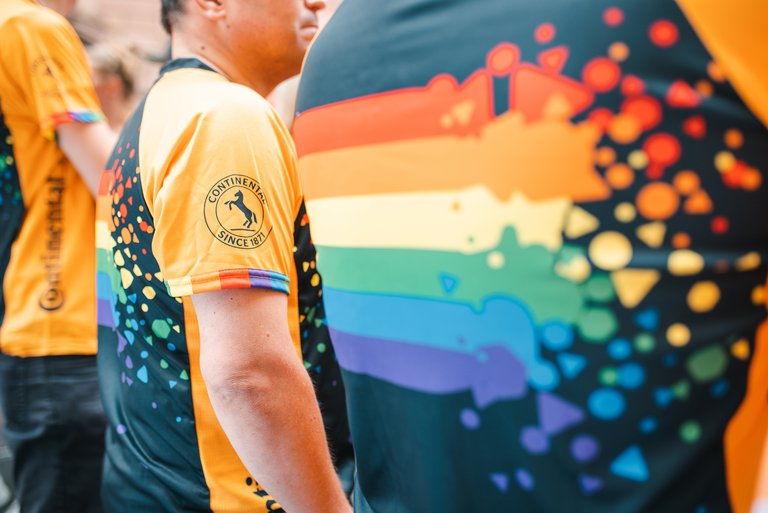Cultivating Inclusion and Embracing Diversity: Celebrating Pride Month
As Finance Manager at Continental Tires Italy, I have been with the company for more than 20 years. In my working environment, I enjoy that there are so many different people and it´s exactly the topic of diversity that got me and my colleague Ulrike Hintze into a lively and insightful conversation recently. We are both working for the Replacement EMEA business area and as head of HR EMEA it is Ulrike´s focus to foster an inclusive organizational culture and encourage individuals to embrace diversity. As a business area, we have set the strategic target of having the most passionate people working in our teams. Hence, Ulrike and I spent quite some time discussing how we can derive tangible approaches and engaging initiatives which will support us in striving towards this goal. I believe that one of the first and most important steps that comes as a prerequisite is establishing a culture of trust and open communication allowing each and every one of us to be honest – towards others but also towards ourselves.
As an executive and a proud member of the LGBTQIA+ community, I am committed to using my visibility and influence within the organization to inspire others to embrace their authentic selves at work.
I have lived and worked in Italy for nearly two decades, although I was born in Germany. Being a foreigner and identifying as gay, I have come to understand the significance of the right to happiness, acceptance, and trust that everyone deserves. Inclusion, both in our personal and professional lives, plays a crucial role in enabling individuals to be themselves and fostering their happiness.
However, my journey to embracing my authentic self hasn't always been easy. In the early stages of my career at Continental in Hannover, I was not ready to openly express my sexuality at work. I chose to avoid discussing my personal life, relationships, and even social gatherings where colleagues brought their partners. This fear of being discovered by my colleagues made me feel dishonest and prevented me from fully embracing my true self.
Everything changed one day when a colleague visited my apartment. My boyfriend was present, and my pride wouldn't allow me to introduce him as anything other than my boyfriend. From that moment, I decided to be open about my sexuality. This decision transformed my well-being at work, as my relationships with colleagues grew stronger, and I found greater happiness and passion in my work. The barriers that had previously constrained me disappeared.
For people who are not yet comfortable being their authentic selves, I would advise reframing the idea of "coming out." It places undue pressure on the person and can make the situation feel overwhelming. In my experience, while it may be significant for the individual, it is often not a monumental event for others. Feeling at ease with ourselves, being open about who we are, and being appreciated in all our facets are essential to building trustful relationships. Trust provides security and peace, and it allows us to perform with greater passion. By integrating aspects of our lives into casual conversations, we can gradually normalize our identities without making them a big issue. Seeking support from superiors, HR, or internal LGBTQIA+ communities within the organization can also provide the necessary encouragement and assistance.
In our business area´s pursuit of having the "Most Passionate People" within our teams, it is vital to recognize that gender diversity is a very significant aspect. However, we should not overlook other aspects of inclusion. In our conversation, Ulrike and I both agreed that being diverse and inclusive as an organization can be a competitive advantage – and we are both convinced that we need stronger statements underlining our goals followed by specific and more visible actions to achieve this. Phrasing the ambition to be diverse and inclusive is easy. Implementing, enforcing, and making it a part of our DNA is much more difficult. Executives and leaders need to be the driving force behind this.
We should have a clear responsibility in this area supported by the necessary knowledge and resources around all the aspects of difference and diversity. A few examples: Do we have the focus and tools for people to develop professionally beyond a specific age? Are we creating working environments that are suitable for younger and older colleagues? Do we see executives participating in a pride parade and then sharing their experiences afterwards? Are we actively promoting the employment and inclusion of e.g. autistic people? There is so much we can learn both as an organization and as individuals from this.
My conversation with Ulrike really encouraged me in my role as advocate for diversity and I believe that our organization is heading in a good direction with the efforts that are being made to shape a culture of inclusion. Being ourselves is a great feeling. Being accepted for who we are is a great feeling. Being included is a great feeling. Let’s make it happen.
